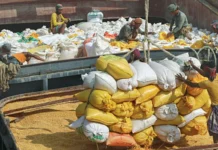Rahman Jahangir
Myanmar’s move to build a ‘mini Singapore’ in its territory should alert the authorities concerned in Bangladesh alert. This should serve as a wake-up call for this country. It may miss opportunities for large foreign investments if its neighbour takes advantage of what it has offered to foreign investors long ago–cheap labour cost.
Although agriculture will continue to remain the mainstay of the Bangladesh economy, the country needs more investment, both domestic and foreign, to create more job opportunities and produce import-substituting goods.
It indeed augured well for the cause of investment in Bangladesh when the government had launched the programme of establishing ‘special economic zones’ for investors, both domestic and foreign. But progress in this regard has been extremely slow.
Prime Minister Sheikh Hasina has recently reiterated her government’s plan to set up SEZs in the country. She urged the entrepreneurs to keep their money at home for investment in such SEZs. What is significant is that her government now attaches importance to setting up of industries outside Dhaka and Chittagong, possibly in order to help facilitate decentralisation of industrial activities in spatial terms. The Prime Minister elaborated her government’s thrust on making supportive efforts for an accelerated pace of industrial growth while talking to the new leadership of the Federation of Bangladesh Chambers of Commerce & Industry (FBCCI), the country’s apex trade promotion body.
What is a special economic zone? These are designated areas of a country which enjoy the benefit of special economic regulations. Such regulations contain measures that are conducive to investment. Conducting business in a SEZ usually means that a company will receive tax incentives and the benefit of lower tariffs.
While many countries have set up SEZs, China has been most successful in using SEZs to attract foreign capital. China has even declared an entire province (Hainan) to be a SEZ.
SEZs can help promote new businesses and attract more investment in diverse sectors. Establishment of SEZs helps support a broad range of activities. The new Economic Zones Act 2010 has opened up a new window and will allow the private sector to own, develop and manage economic zones and establish infrastructure and services for the companies there.
A recent research finding shows that the SEZs have vast potential to create employment and attract investment, improve social and environmental compliance of companies, facilitate transfer of technology, provide improved infrastructure to investors through public-private partnership, expand domestic and international market.
The government should establish integrated and effective economic zones in the country. The Bangladesh Economic Zone Authority (BEZA) has already been established and necessary recruitment is also under process. Private sector investment in the economic zones has to be ensured. Setting up of big, medium and small industries or establishments in any sector, including cottage industry, should be allowed to be established in the economic zones.
The government should review the opportunities for private sector involvement in the provision and development of infrastructure in economic zones. Today, Bangladesh is a private sector-led export-oriented country. So, it needs huge investment for infrastructural development. It is not possible for the government alone to invest the huge amount of huge money required for this purpose due to the country’s resource constraints. So, private sector investment in the economic zones needs to be encouraged.
SEZs should be based on feasibility and pre-feasibility studies. It has to be kept in mind that Bangladesh is a land-scarce country. Both domestic and foreign investors should get equal facilities in the SEZs.
Economic zones will create increased linkages with the domestic economy by widening and strengthening Bangladesh’s experience with Export Processing Zones (EPZs).
Some places have already been identified in Sylhet, Kaliakoir, Narsingdi, Comilla and Chittagong for SEZs, and the government should form an independent authority and a governing body in this regard.
The biggest SEZ success stories like those of China and Malaysia started slowly at the beginning and had taken at least five to ten years before they gained the desired momentum.
It is encouraging to note that the government has assured uninterrupted in-built electricity to industrial units in the proposed SEZs. All investors, including foreign and local entities, will be allowed to set up power plants at the SEZs through public-private partnership. Investors from home and abroad, who are interested to set up power plants, will be allowed to do so, but the electricity tariff will have to be reasonable.
The concept of SEZs is to promote economic growth led by the private sector and domestic investors should get the priority while plots are allotted in the zones. The SEZs should not be like EPZs (export processing zones) as domestic entrepreneurs will have to be given priority in the industrial parks.
The concept of SEZ has already attracted Indian investors. They recently asked for a special zone in Bangladesh to set up heavy industries. Members of an Indian business delegation met Prime Minister’s Foreign Affairs Adviser Gowher Rizvi.
If the government gives a go-ahead to a SEZ for Indian entrepreneurs, Bangladesh may receive Indian investment worth $2.0-3.0 billion, according to Indo-Bangladesh Chamber of Commerce and Industry. Other countries have also evinced active interest in having separate SEZs. Japan is one of them.
Time is running out fast for Bangladesh to boost investment as Myanmar is gradually opening and India, too, has already moved along this line. Early setting up of the SEZs is now the need of the hour.
Source: Financial Express









